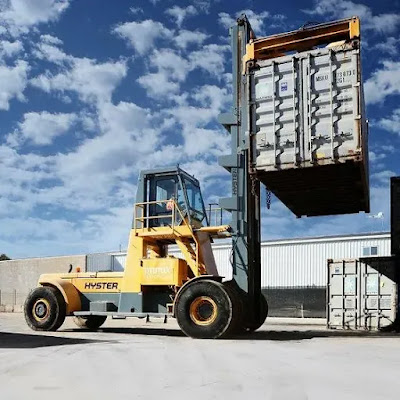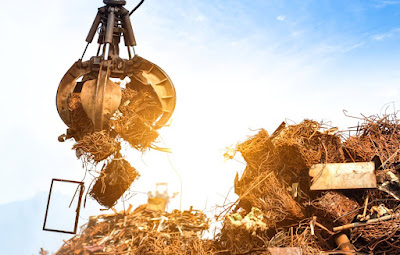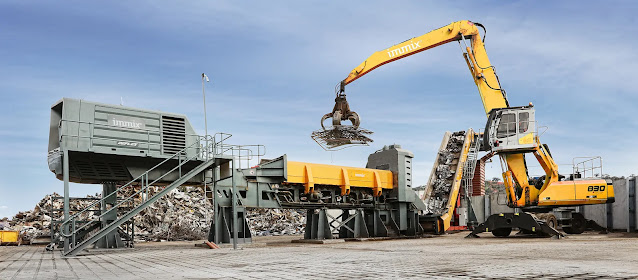The Ultimate Guide to Metal Recycling: How You Can Make a Difference
Metal recycling is the process of collecting, sorting, and reusing various types of metal materials. It is an essential practice that helps conserve natural resources, reduce energy consumption, and minimize waste.
In this ultimate guide, we will explore the importance of metal recycling Melbourne, the benefits it offers, how you can recycle metal, creative ways to upcycle metal, and answer frequently asked questions. By the end of this blog post, you will have a clear understanding of metal recycling and be inspired to take action in your own life.
What is Metal Recycling?
Metal recycling involves the collection, processing, and transformation of scrap metal into usable materials. The process typically begins with the collection of metal items, such as cans, appliances, or automotive parts. These items are then sorted based on their type and composition. The sorted metal is then cleaned, melted, and transformed into new products.
There are various types of metals that can be recycled, including aluminum, steel, copper, brass, and more. Each metal has its own unique properties and recycling process. Aluminum, for example, is one of the most commonly recycled metals due to its high recyclability and energy-saving benefits.
Steel, on the other hand, is recycled to conserve natural resources and reduce greenhouse gas emissions. By recycling different types of metals, we can minimize the need for mining and extraction, thereby preserving the environment.
Benefits of Metal Recycling
Metal recycling offers numerous environmental benefits. Firstly, it conserves natural resources by reducing the need for new metal extraction. Mining and extracting metal ores can have detrimental effects on ecosystems, including deforestation, habitat destruction, and water pollution. By recycling metal, we can significantly reduce these impacts.
Additionally, metal recycling helps conserve energy. The production of new metal from recycled materials requires considerably less energy compared to extracting and refining metal ores. For example, recycling aluminum can save up to 95% of the energy required to produce new aluminum from bauxite ore. This energy savings not only reduces greenhouse gas emissions but also helps combat climate change.
From an economic perspective, metal recycling Melbourne offers several benefits. Individuals and communities can earn money by selling their scrap metal to recycling centers or scrap yards. This additional income can be particularly valuable for individuals or families facing financial challenges. Furthermore, recycling metal creates job opportunities in the recycling industry, contributing to local economies.
How to Recycle Metal
Recycling metal is a straightforward process that can be done at home or in your community. Here is a step-by-step guide on how to recycle metal:
- Collecting and sorting metal: Start by collecting metal items that you no longer need or are at the end of their life cycle. Separate the different types of metal to ensure proper recycling. Use separate containers or bins to store aluminum, steel, copper, and other metals.
- Finding local recycling centers or scrap yards: Research and locate nearby recycling centers or scrap yards that accept metal materials. Many communities have dedicated drop-off locations or curbside pickup services for recycling metal.
- Preparing metal for recycling: Clean the metal items by removing any non-metal components, such as plastic or rubber. Rinse out food or beverage containers to remove any residue. Check with your local recycling center for specific preparation requirements.
- Ensuring safe handling and disposal: When handling metal items, use gloves and take precautions to avoid any cuts or injuries. Always dispose of metal in designated recycling containers or drop-off locations. Never dispose of metal in regular trash bins or litter.
By following these steps, you can easily incorporate metal recycling into your daily routine and contribute to a more sustainable future.
Creative Ways to Upcycle Metal
Instead of throwing away old metal items, consider repurposing or upcycling them into something new and useful. There are countless creative ways to give old metal a new life. Here are a few ideas to get you started:
- DIY projects: Turn old metal cans into pencil holders, flower pots, or lanterns. Use metal scraps to create unique jewelry or decorative items.
- Artwork: Use metal materials to create sculptures, wall art, or mobiles. Let your imagination run wild and transform scrap metal into stunning pieces of art.
- Garden decorations: Repurpose metal items, such as buckets, watering cans, or old tools, into charming garden decorations. They can be used as planters, bird feeders, or decorative ornaments.
By upcycling metal, you not only reduce waste but also showcase your creativity and add a personal touch to your surroundings.
Frequently Asked Questions about Metal Recycling
Addressing common questions and concerns about metal recycling can help clear any doubts or misconceptions. Here are answers to frequently asked questions:
- Is it worth it to recycle small amounts of metal? Yes, every small effort counts when it comes to metal recycling. Even small amounts of metal can be recycled, contributing to overall resource conservation and energy savings.
- Can rusty or painted metal be recycled? Yes, rusty or painted metal can still be recycled. However, it is important to separate them from non-metal components and follow any preparation instructions provided by the recycling center.
- Are there any restrictions on what types of metals can be recycled? Generally, most types of metals can be recycled. However, certain hazardous materials, such as lead-acid batteries, should be handled separately. Consult your local recycling center for specific guidelines on acceptable metals.
Conclusion
Metal recycling Melbourne is an important practice that offers significant environmental and economic benefits. By understanding the process, benefits, and creative ways to recycle metal, you can take an active role in protecting the environment and contributing to a more sustainable future.
Remember, every effort, no matter how small, counts when it comes to metal recycling. So let's get started and make a difference by embracing metal recycling today.




Comments
Post a Comment